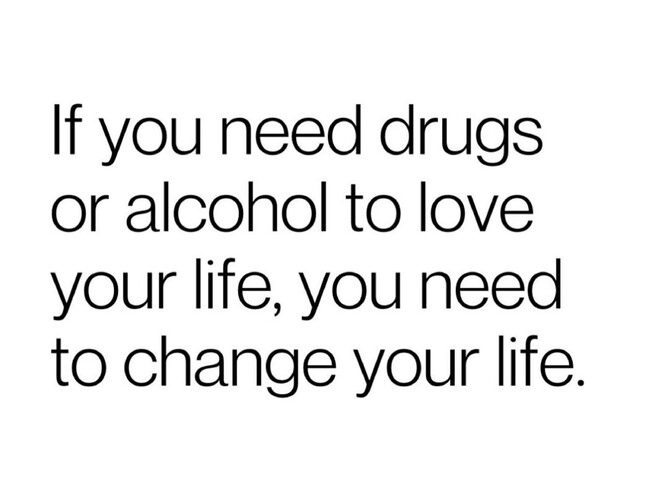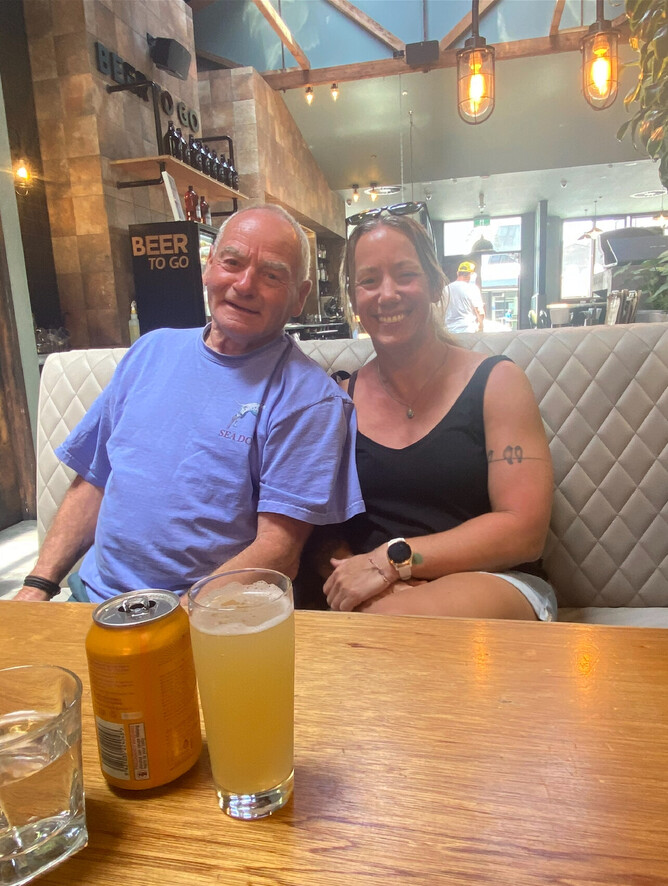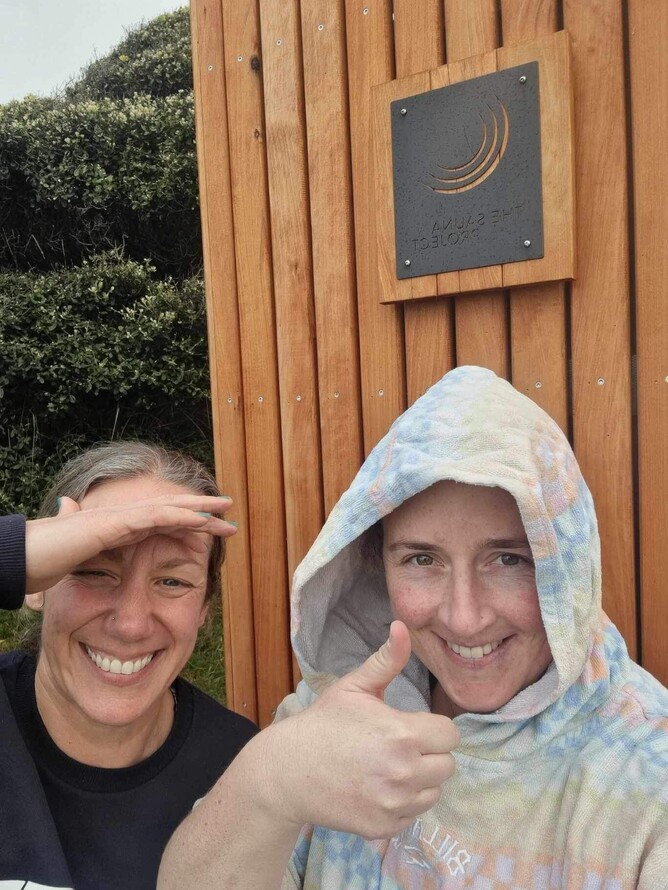Handling Social Situations without Alcohol
If you’re reading this, chances are you’re exploring your relationship with alcohol, or maybe you’re in the process of making a change. I know first hand how tough it can be to navigate social situations without the crutch of alcohol, and to be honest, I still struggle sometimes. Whether it’s a party, a family gathering, or even a simple get-together with friends, being around alcohol can feel triggering and uncomfortable—especially at first.
But you can enjoy these moments without needing to drink. Over time, it gets easier, and you’ll find that you can build stronger connections and feel more in tune with yourself without alcohol. Here’s how you can cope with those triggers and enjoy social settings without feeling like you’re missing out.
Acknowledge Your Triggers
When I first started paying attention to my relationship with alcohol, I had to get real with myself about what my triggers were. It wasn’t just the sound of someone cracking open a beer or the sight of people pouring a wine—it was the stress, the anxiety, and more often than not, the fear of feeling left out. These feelings are 100% why I kept going back to drinking, but once I understood what they were, I could begin to manage them. Eventually I wanted a life of sobriety more than I wanted a drink, and that's when I finally started to make progress.
I encourage you to take some time to reflect on your own triggers. Maybe it’s being in certain environments or around certain people, dealing with social pressure, or simply feeling overwhelmed. Once you’ve identified your triggers, you can prepare yourself mentally for them. It’s all about self-awareness.
Tip: Consider keeping a journal. It can be incredibly enlightening to track your triggers, how they make you feel, and how you respond. This simple practice will help you be better prepared for the next time and help you become more mindful with your drinking.
Plan Ahead
I used to dread going to events where I knew people would be drinking because I didn’t feel prepared. In fact, a few years back, just before Christmas I went to an event armed with my alcohol-free ciders, left them in the car and walked straight up to the bar and ordered a G&T. To this day I have no idea why I did this, as I'd been on a 50-ish day stretch of sobriety and had no intention of drinking that night at all. But I ended up drinking right over Christmas and New Year because of that one night.
These days I think ahead. I decide how I’ll handle certain situations—what I’ll say when someone offers me a drink, what I’ll do if I start feeling uncomfortable. Having a plan helps me feel in control. You don’t have to explain yourself to anyone, but it can help to have a response ready, like “I’m taking a break from drinking” or “I’m good with my sparkling water, thanks.”
Tip: Practice your responses before you go out. That way, when you’re in the moment, you’ll feel more confident and less likely to be thrown off.
Bring Your Own Drinks
This one is a game-changer. When I stopped drinking, I found that having something in my hand helped me feel more comfortable and less out of place. It didn’t matter if I was at a bar or a friend's house - having a drink, even if it was just a soft drink in a wine glass, helped me blend in.
When I first gave up, the options were pretty limited, but these days there is such a huge range of alcohol-free options that you are almost spoiled for choice. Alcohol-free sparkling wines in a champagne glass, booze-free beers in a bottle, countless mocktail recipes - whatever you choose, you can look and feel the part and drive home from the evening knowing you're going to feel fresh in the morning!
Tip: Don’t be afraid to get creative with your drink choices. You don’t have to settle for a plain soda or water. Have fun with it! Make it a part of your experience, not just a substitute. The amount of people that still drink that have wanted to try my alcohol-free drinks is crazy!
Stay Focused on Why You’re Doing This
When I’m in a social situation and feeling the pressure to drink, I remind myself why I made the choice to stop. For me, it’s about being a good role model for my kids, my health, mental clarity, and building relationships that are more authentic. What’s your “why”? It’s so important to keep your reasons for making this change in the forefront of your mind. Whether it’s for your physical health, mental well-being, or simply to create a life where alcohol no longer has a hold on you, remembering why you’re making this choice helps you stay grounded when faced with temptation.
Tip: Take a moment before you go to a social event to remind yourself of your reasons. This can be a simple practice, but it can really help reinforce your commitment in the moment. It also always pays to have a list of your why's on your phone so you can refer back to it in moments of doubt.
Set Boundaries & Be Firm
One of the hardest things I’ve had to learn is how to stand firm in my decision without feeling guilty. I’ve been in situations where people I care about didn’t understand my choice to be sober, and I felt bad saying no. But over time, I’ve learned that setting boundaries isn’t just about protecting my sobriety - it’s about respecting myself and my journey. You don’t owe anyone an explanation, and it’s okay to say “no” politely but firmly. If someone pressures you, trust me, it’s their issue, not yours.
Many people who drink struggle around people that don't as it shines a light on their own drinking which they may not be ready to face - I know for a fact that I was one of these people, I hated being around sober people and was quite rude to them. Now that I've been on the receiving end of that kind of behaviour, this makes me feel absolutely terrible!
Tip: Practice setting boundaries in low-pressure situations so that when you’re in a more challenging one, it feels natural. You don’t need to make a big deal out of it, just say what feels right for you.
Create New Social Habits
When I first stopped drinking, I thought I would never have fun again at social events. I believed that alcohol was the glue that made everything enjoyable. But I’ve since learned that the best memories are made when I’m fully present and engaged, not when I’m under the influence. That’s when I realized that I could create new traditions and activities that didn’t involve alcohol.
Try organising events with friends that focus on things you love—whether it’s a movie night, a hike, or even a cooking class. There are so many ways to connect and have fun without alcohol being the main focus. One of my favourite things to do these days is to do a sauna and then jump in the sea! Living near the beach, there is a mobile sauna that parks up next to the ocean and my friends and I spend an hour running between the heat of the sauna and the freezing cold water - the endorphins we get from doing this far outweigh the fake high of booze.
Tip: Next time you’re planning a get-together, think of activities that don’t revolve around drinking. You’ll be surprised how refreshing it is to focus on the experience itself rather than the alcohol.
Lean on Your Support System
There’s nothing like having a support system that gets it. If you’re heading into a social situation where you know it might be tough, reach out to a friend, mentor, or someone who supports your decision to stay sober. Sometimes, just knowing that someone has your back can give you the strength to handle anything that comes your way. And if you don’t have someone physically with you, it’s still helpful to text or call them before or after the event for a quick check-in.
One of the things I love about the online sober community is that, due to people being from all over the world, there is always someone to give you words of advice or a virtual hug if you're struggling. The amount of times that I reached out for help and within seconds someone would answer my call was incredible. You might never meet these people but, if you don't have much support from your friends and family, they can become so important to you. I have people on the other side of the world that I am still in touch with due to bonding over our sobriety journeys.
Tip: It’s absolutely okay to ask for support. A quick text, call or online post can make a huge difference when you’re feeling vulnerable.
Be Kind to Yourself, Always
Finally, I want to remind you to be gentle with yourself. Social situations will sometimes be hard. You might feel tempted. You might even slip up, and that’s okay. Recovery is not about perfection; it’s about progress. Be patient with yourself. Every time you face a trigger and choose not to drink, you’re proving to yourself that you’re capable of handling difficult situations. Celebrate those moments, and remember that growth happens in the uncomfortable spaces.
Tip: If you do slip up, don’t beat yourself up. Take a deep breath, reset, and get back on track. Think about what you could do differently next time. Learn from it and you'll get stronger every time. Tomorrow is always a new opportunity.
Handling social situations without alcohol isn’t easy, but it’s absolutely possible. The more you practice, the more natural it will feel. By staying true to your reasons for sobriety, planning ahead, and building new habits, you’ll find that you can thrive in any situation without the need for alcohol. And remember—you're not alone in this. Every step you take is a victory, and I'm proud of you for taking this journey. You’ve got this.


